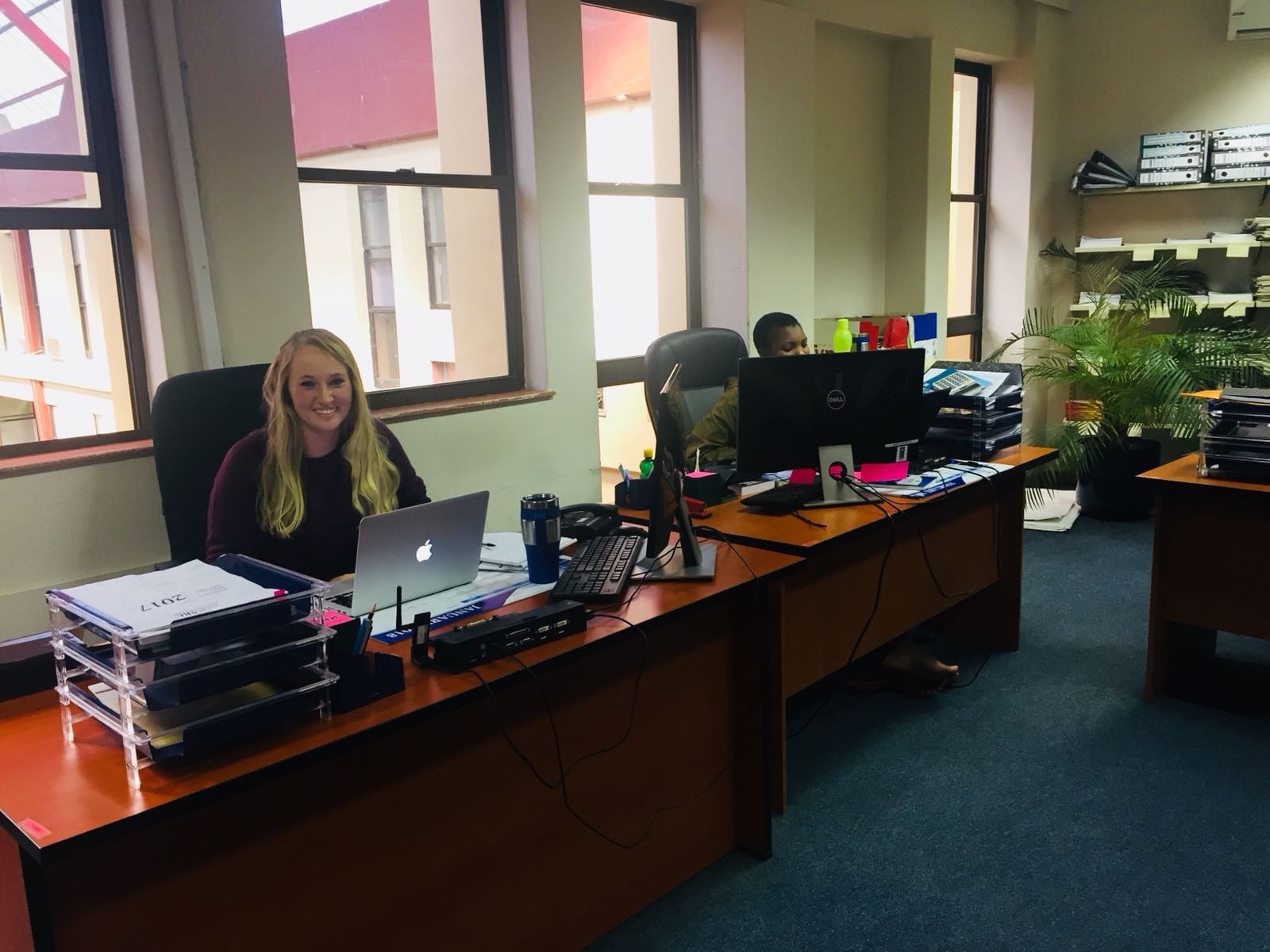
Erin Farmer working in the intern office at the Eswatini Economic Policy Analysis and Research Center
Honors economics, physics and mathematics senior Erin Farmer is trained in microeconomics, but last summer she had to think big for her internship in economic policy analysis and research in Mbabane, Swaziland. The job acquainted her with macroeconomic analysis, and stretched her limits as she adapted to both new software and analytical procedures, and a new cultural environment.
My name is Erin Farmer, and I am a senior studying economics, physics and mathematics and minoring in international economic development. This summer, I interned at the Eswatini Economic Policy Analysis and Research Center (SEPARC) in Mbabane, Swaziland, for two months. I worked in the SEPARC offices from 8-5 every day of the week and shared an office with 6 other interns and researchers, 5 of whom were from areas around Eswatini and one who was a recent graduate from the U of A. Mbabane is located in the mountains and is the capital of Swaziland, but I also took trips out into the countryside.
For my internship, I was assigned a research project. SEPARC asked me to evaluate how changes in funding for research and development would affect different aspects of the economy, including GDP, household income and output of different sectors. In order to do this, they gave me the social accounting matrix for Swaziland, which is a method of representing all the transactions in an economy. Essentially, it captures all economic activity. From there, I was tasked with figuring out how to incorporate R&D into the social accounting matrix. Then, I specified a recursive-dynamic R&D-based computable general equilibrium model to capture the equilibrium in the economy. This model shows how various economic indicators are related to one another. Variables can then be changed to evaluate their effects on the economy. Finally, I worked on coding the model in the GAMS software.
This was challenging, initially, because the concepts required to complete this project are macroeconomic concepts and skills, and most of my training has been in microeconomics. Additionally, I had never learned about social accounting matrices, computable general equilibrium models, or the software required to evaluate them. I had to spend time at the beginning teaching myself about social accounting matrices and how to use them. Further, incorporating R&D in the matrix is not common practice and figuring out how best to do so was challenging.
This internship taught me a lot about macroeconomic modeling and how to work with macroeconomic data, something I knew little about before I went to Swaziland. I also learned a lot about development practices and how institutions work together to find solutions to poverty and other pressing issues. I am hoping to use this experience and others to help guide me when applying to graduate schools this fall, as I plan to apply to programs in international development.
